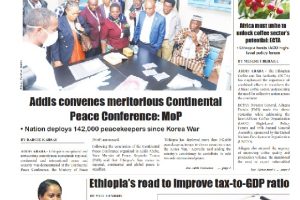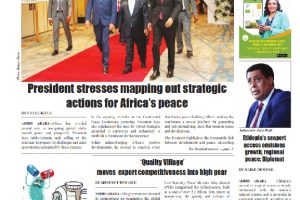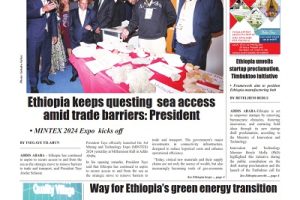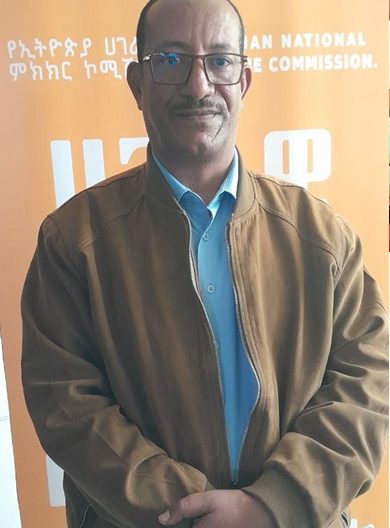
National Dialogue has proven to be an effective tool for facilitating political transitions and resolving longstanding conflicts worldwide. Ethiopia is no exception, as the Ethiopian National Dialogue Commission (ENDC), established in 2022, continues its efforts to lay the groundwork for a peaceful and inclusive National Dialogue.
The commission has been actively conducting agenda-gathering sessions and identifying participants across various states and city administrations. Its efforts include engaging with key stakeholders such as political parties, religious institutions, artists, media professionals, and the Diaspora.
In discussions with intellectuals from 56 universities, scholars emphasized the critical role of higher education institutions in ensuring the success of the National Dialogue.
Wolkite University’s President Office Head Melese Tefu highlighted the dialogue’s potential to address age-old challenges, foster national consensus, and resolve differences peacefully. He praised the ENDC’s grassroots initiatives to identify and address the country’s pressing issues, noting that engaging diverse societal groups-scholars, teachers, youth, and political parties-is crucial to countering harmful narratives and fostering unity.
“Intellectuals have a significant responsibility to bridge societal and historical gaps through research and education,” Melese stated. He stressed the need for scholars to shape youth perspectives and actively contribute to the dialogue’s success.
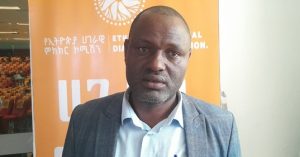
Similarly, Wachemo University’s Health Science College Director-General Office Head Melese Amshego expressed optimism about the ENDC’s activities, describing them as a beacon of hope for Ethiopia’s unity. He noted that the dialogue could reinforce cultural and religious values, strengthen people-to-people ties, and pave the way for sustainable peace.
“The National Dialogue presents an opportunity to create patriotic, critical-thinking, and solution-oriented youth, which is essential for the nation’s progress,” he added.
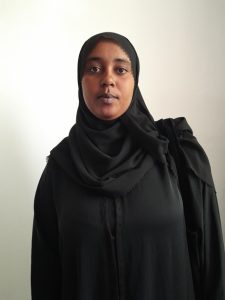
For Jigjiga University Lecturer Feriya Hassan (PhD), the dialogue is a foundation for lasting peace and national consensus. She underscored the importance of addressing societal gaps caused by misinformation and emphasized the need for inclusivity in the agenda-gathering process.
“The commission must involve all states to ensure a truly inclusive dialogue,” she stated. “The more inclusive the dialogue, the better the outcomes will be.”
Feriya also pointed out that beyond intellectuals, religious leaders, public figures, and political parties have a critical role in raising awareness and guiding communities toward peaceful resolutions.
The National Dialogue offers Ethiopia an opportunity to strengthen societal ties, create a conducive environment for development, and resolve differences peacefully. Intellectuals, alongside other key stakeholders, must rise to the occasion to ensure its success and contribute to the country’s lasting stability and unity.
BY BETELHEM BEDLU
THE ETHIOPIAN HERALD WEDNESDAY 27 NOVEMBER 2024


